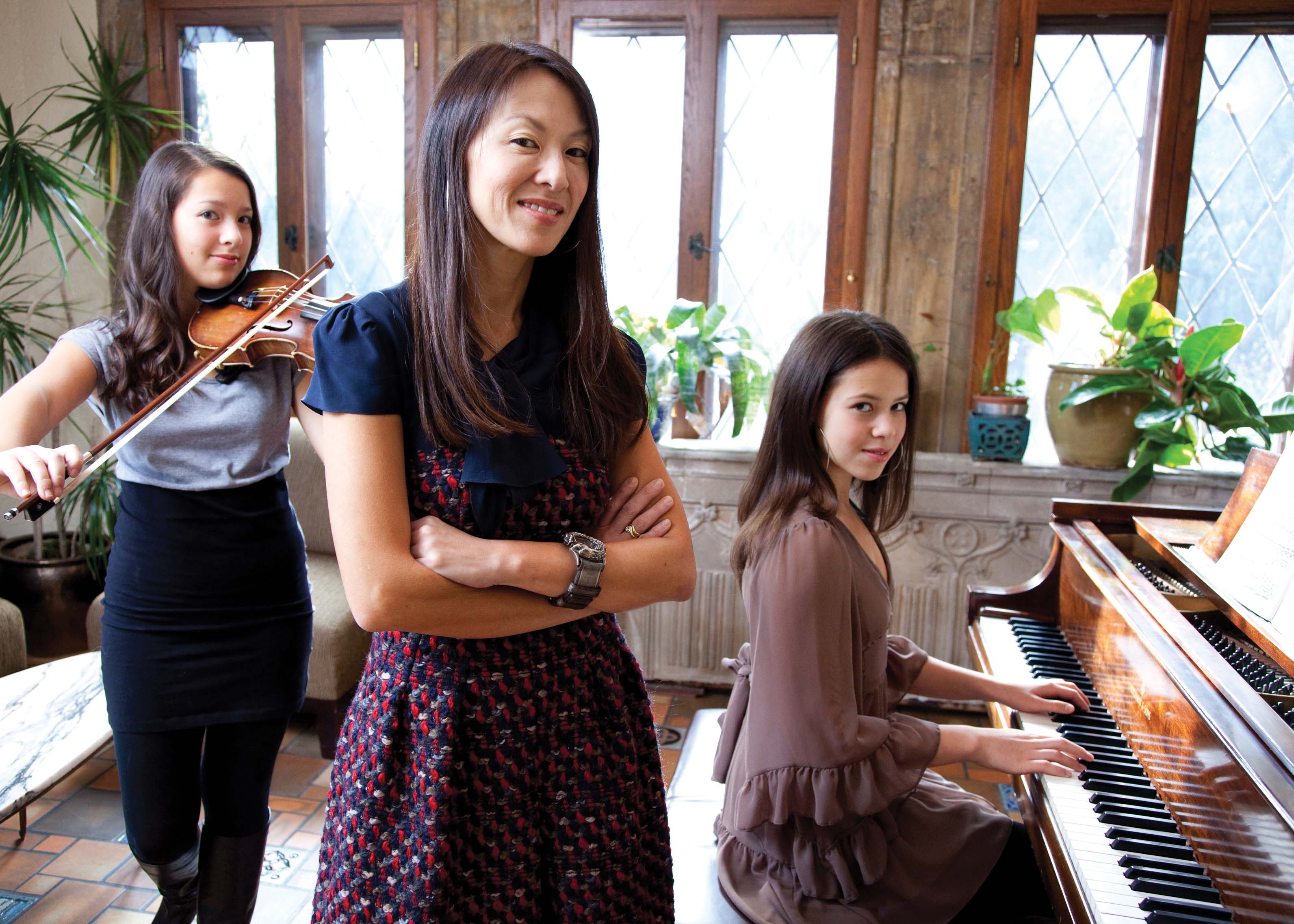11.3 Humanistic Theories
We have thus far discussed the psychoanalytic theories of personality development, which emphasize the importance of factors beyond one’s control. You don’t get to choose the identity of your parents, the dynamics within your family, or the nature of your childhood conflicts. Nor do you have the ability to direct unconscious activities. For those looking for more self-direction than the psychoanalytic theories permit, humanism may offer an attractive alternative. With this theoretical approach, the power is in your hands.
The Brighter Side: Maslow and Rogers
The humanistic perspective began gaining momentum in the 1960s and 1970s in response to the negative, mechanistic view of human nature apparent in other theories. According to the humanists, not only are we innately good, we are also in control of our destinies, and these positive aspects of human nature drive the development of personality. According to leading humanists Abraham Maslow and Carl Rogers, our natural tendency is to grow in a positive direction.
Maslow and Personality
LO 6 Describe how Maslow’s hierarchy of needs relates to personality.
Abraham Maslow (1908–1970) is probably best known for his theory of motivation. According to Maslow, human behaviors are motivated by biological and psychological needs. When a need is not being met, a state of tension motivates us to meet it, leading to the reduction of the drive. Maslow’s hierarchy of needs explains the organization of human needs, which are universal and ordered in terms of their strength (from basic physiological needs to self-actualization and self-transcendence). How does this discussion of needs relate to personality? If you recall, personality is the unique core set of characteristics that influence the way we think, act, and feel. Although we tend to respond to needs in a universal order, Maslow suggested that we all have the ability to reorder them. Not only are we responsible for being proactive in our lives; we also have an urge to “feel free and to be free” (Maslow, 1971, p. 14). Maslow was particularly interested in self-actualizers (TABLE 11.3), or people who are continually seeking to reach their fullest potential, a drive that is one of the guiding principles of the humanistic perspective.
| Tendencies | Characteristics | Examples |
|---|---|---|
| Realistic perceptions of reality | Nonjudgmental, objective, and acutely aware of others | An individual who is empathetic and unbiased |
| Acceptance of self, others, and nature | Has patience with weaknesses of self, others, and society | Someone who is forgiving and accepting of others |
| Spontaneity and creativeness | Original, flexible, and willing to learn from mistakes | Someone who is self-sufficient and lives in unconventional ways |
| Independent and private | Not reliant on others, enjoys time alone | A person with a strong sense of self who doesn’t conform to peer pressure |
| Freshness of appreciation | Views each experience as if it were the first time (e.g., sunrise), is grateful for what he has | An individual who lives life thankful for each day |
| Peak experiences | Has moments of ecstasy and transcendence | A highly spiritual individual who experiences intense happiness in day-to-day activities |
| Social interest and fellowship | Empathic and sympathetic toward others | A person who is devoted to helping others |
| Profound interpersonal relations | Maintains deep and lasting friendships | Someone with intense, lifelong friendships |
| A democratic character structure | Tolerant and accepting of others | A person who is open-minded and humble |
| Autonomous and resistant to enculturation | Independent and free from cultural pressures | An individual who is self-sufficient in thought and behavior and resists social pressure |
| According to Maslow, a “self-actualizer” is someone who continually strives to achieve his maximum potential. Listed here are common traits and examples of self-actualizers. | ||
| SOURCE: ADAPTED FROM SHULTZ AND SHULTZ (2013) WITH PERMISSION. | ||
CONNECTIONS
Maslow’s hierarchy of needs was introduced in Chapter 9, in reference to motivation. According to Maslow, behaviors are motivated by needs. If a basic need is not being met, we are less likely to meet needs higher in the hierarchy. Here, we see how Maslow’s hierarchy can be used to understand personality.
Rogers and Personality
LO 7 Discuss Rogers’ view of self-concept, ideal self, and unconditional positive regard.
Carl Rogers (1902–1987) was another humanist who had great faith in the essential goodness of people and their ability to make sound choices (Rogers, 1979). According to Rogers, we all have an innate urge to move toward situations and people that will help us grow and to avoid those with the potential to inhibit growth. He believed we should have faith in our ability to find happiness and mental balance, that is, to be fully functioning, and strive to really experience life, not just be passive participants. At the same time, we must also be sensitive to the needs of others.

Rogers highlighted the importance of self-concept, which refers to a person’s knowledge of her own strengths, abilities, behavior patterns, and temperament. Problems arise when a person’s self-concept is incongruent with, or does not correspond to, her experiences in the world (Rogers, 1959). If a woman believes she is kind and sociable but fails to get along with most people in her life, this incongruence will produce tension and confusion. Rogers also proposed that people often develop an ideal self, which is the self-concept a person fervently strives to achieve. Problems arise when the ideal self is unattainable or incongruent with one’s self-concept, a topic we will discuss further in Chapter 14 (Rogers, 1959).

Like Freud, Rogers believed caregivers play a vital role in the development of personality and self-concept. Ideally, caregivers should show unconditional positive regard, which is the total acceptance of a child regardless of her behavior. According to Rogers, people need to feel totally accepted and valued for who they are, not what they do. Caregivers who place too much emphasis on rules, morals, and values, ignoring a child’s innate goodness, can cause the child to experience conditions of worth. When our behaviors are judged by others to be bad or wrong, we feel unworthy, so we may try to please others by hiding or repressing these “unacceptable” behaviors and emotions. Seeking approval from others, we deny our true selves, and anxiety is ever-present in our lives. As caregivers, it is important to show children that we value them all the time, not just when they obey us and act the way we want them to. Of course, children behave in ways we dislike; but parents should love their children unconditionally, because it is the behavior that is unacceptable, not the child.
Taking Stock: An Appraisal of the Humanistic Theories
Let’s step back and review the potential weaknesses of the humanistic approach. For humanistic and psychoanalytic theories alike, creating operational definitions can be challenging. How can you use the experimental method to test a subjective approach whose concepts are open to interpretation (Schultz & Schultz, 2013)? Imagine submitting a research proposal that included two randomly assigned groups of children: one group whose parents were instructed to show them unconditional positive regard and the other group whose parents were told to instill conditions of worth. The proposal would never amount to a real study, not only because it raises ethical issues, but because it would be impossible to control the experimental conditions. Another problem with unconditional positive regard in particular is that constantly praising, attempting to boost self-esteem, and withholding criticism can be counterproductive. In some cases, we run the risk of “fostering narcissism,” or another unproductive characteristic of elevated self-esteem such as aggression (Baumeister, Campbell, Krueger, & Vohs, 2003). Finally, humanism almost completely ignores the negative aspects of human nature evident in war, greed, abuse, and aggression (Burger, 2011). And while it is important to recognize that humans have great potential to grow and move forward, we should not discount the developmental impact of early experiences. In spite of these weaknesses, the humanistic perspective has led to a less negative and more balanced view of human nature, influencing approaches to parenting, education, and psychotherapy. Its legacy is alive and well in the emerging field of positive psychology (Chapter 12).
CONNECTIONS
In Chapter 1, we described positive psychology as a relatively new approach. The humanists’ optimism struck the right chord with many psychologists, who wondered why the field was not focusing on human strengths and virtues.
In the next section, we will explore how personality is influenced by forces in the outside world. How do you think your interactions with the environment have shaped your personality?
show what you know
Question 11.8
1. __________ was a humanist who was interested in exploring people who are self-actualizers. __________, also a humanist, discussed self-concept and problems that can arise when it is incongruent with our experiences in the world.
Abraham Maslow; Carl Rogers
Question 11.9
2. The total acceptance of a child regardless of her behavior is known as:
- conditions of worth.
- repression.
- the real self.
- unconditional positive regard.
d. unconditional positive regard.
Question 11.10
3. How do the psychoanalytic and humanistic perspectives differ in regard to personality development?
Answers will vary, but could include the following. The psychoanalytic perspective assumes that personality development begins early in life and is heavily influenced by processes of which we are unaware (like conflict, aggression, sexual urges) and the way caregivers respond. The humanistic perspective suggests that we have capabilities we can and should take advantage of as we strive for personal growth, the choices we make in life influence our personalities, and we are innately good and control our own destinies. The psychoanalytic perspective states that we have little control over our development and personality, while the humanistic perspective states that we can influence our growth.